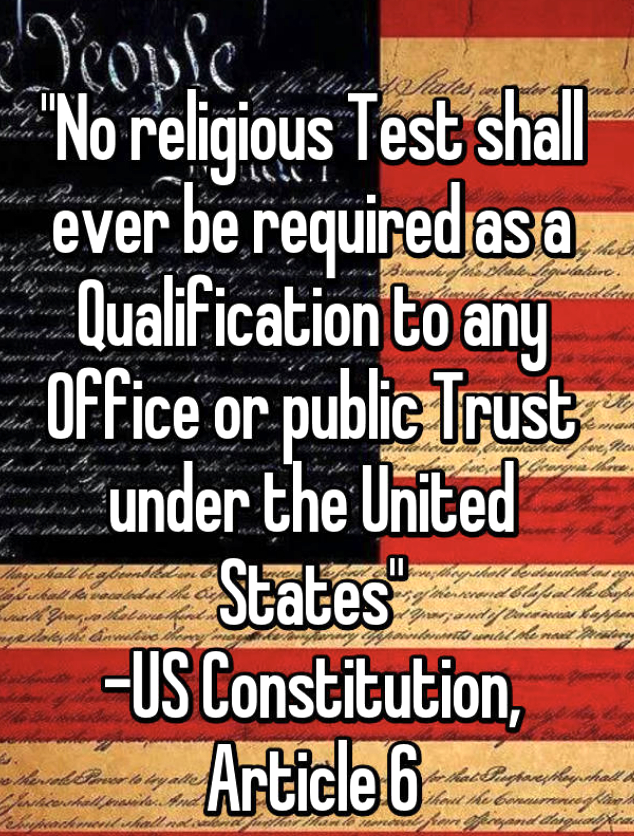On this date in 1961, the U.S. Supreme Court handed down its unanimous decision in Torcaso v. Watkins, overturning a provision in the Maryland Constitution requiring that “a declaration of belief in the existence of God” be required as a qualification for any office of profit or trust in the state. Roy Torcaso, an atheist, had been asked to become a notary public at the Bethesda construction company where he worked and refused to swear to a religious oath of office in circuit court.
The Maryland Court of Appeals held, “The petitioner is not compelled to believe or disbelieve, under threat of punishment or other compulsion. True, unless he makes the declaration of belief he cannot hold public office in Maryland, but he is not compelled to hold office.”
The high court rejected such a rationale, saying it “cannot possibly be an excuse for barring him from office by state-imposed criteria forbidden by the Constitution.” Roy had asked the court to find the state constitutional requirement in violation of Article VI of the U.S. Constitution, which mandates that “no religious Test shall ever be required as a Qualification to any Office or public Trust under the United States.” In a footnote the court noted: “Because we are reversing the judgment on other grounds, we find it unnecessary to consider appellant’s contention that this provision applies to state as well as federal offices.”
Torcaso died in 2007 at age 96 at the Himalayan Elderly Care assisted living home in Silver Spring from complications of prostate cancer. “The point at issue,” he said in refusing to take the oath, “is not whether I believe in a Supreme Being, but whether the state has a right to inquire into my beliefs.”

